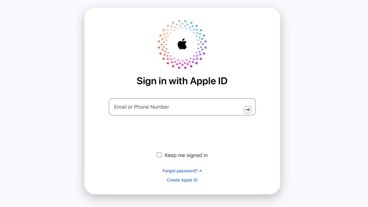Apple countersues Nokia over cell phone technology [U x2]
In October, Nokia sued Apple over the alleged use of patented wireless standards in the iPhone. Nokia has argued that the iPhone infringes on GSM and wireless LAN patents it owns. That suit involves 10 patents owned by Nokia.
In a brief press release Friday, Apple announced its countersuit as a "response" to Nokia's own legal action.
"Other companies must compete with us by inventing their own technologies, not just by stealing ours," said Bruce Sewell, Apple's General Counsel and senior vice president.
Update: In its defense, Apple has argued that Nokia's patents are all related to standards, which means they have been committed to be licensed freely and without discrimination by Nokia. Nokia's own complaint seeks special licensing terms from Apple, and access to the company's own patents.
Apple has alleged that Nokia is attempting to obtain more money from it than other companies, plus rights to Apple's intellectual property — all after the Finnish company has committed itself to nondiscriminatory licensing.
"In dealing with Apple, Nokia has sought to gain an unjust competitive advantage over Apple by charging unwarranted fees to use patents that allegedly cover industry compatibility standards and by seeking to obtain access to Apple's intellectual property," the suit reads. "Nokia needs access to Apple's intellectual property because Nokia has copied and is now using that patented technology."
In its court filing, Apple said Nokia "remained focused on traditional mobile wireless handsets with conventional user interfaces," while the iPhone revolutionized the way consumers use smartphones.
"As a result, Nokia has rapidly lost share in the market for high-end mobile phones. Nokia has admitted that, as a result of the iPhone launch, "the market has changed suddenly and [Nokia was] not fast enough changing with it. In response, Nokia chose to copy the iPhone, especially its enormously popular and patented design and user interface."
It goes on to quote Anssi Vanjoki, Nokia's executive vice president and general manager of multimedia, at an event in 2007 when he compared Nokia's products to the iPhone: "[If] there is something good in the world, we copy with pride."
"True to this quote," Apple said, "Nokia has demonstrated its willingness to copy Apple's iPhone ideas as well as Apple's basic computing technologies, all while demanding Apple pay for access to Nokia's purported standards essential patent. Apple seeks redress for this behavior."
The patents in question owned by Apple are (via Digital Daily):
- No. 5,634,074 : Serial I/O device identifies itself to a computer through a serial interface during power on reset then it is being configured by the computer
- No. 6,343,263 B1 : Real-time signal processing system for serially transmitted data
- No. 5,915,131 : Method and apparatus for handling I/O requests utilizing separate programming interfaces to access separate I/O services
- No. 5,555,369: Method of creating packages for a pointer-based computer system
- No. 6,239,795 B1: Pattern and color abstraction in a graphical user interface
- No. 5,315,703: Object-oriented notification framework system
- No. 6,189,034 B1: Method and apparatus for dynamic launching of a teleconferencing application upon receipt of a call
- No. 7,469,381, B2: List scrolling and document translation, scaling, and rotation on a touch-screen display
- No. RE 39, 486 E: Extensible, replaceable network component system
- No. 5,455,854: Object-oriented telephony system
- No. 7,383,453 B2: Conserving power by reducing voltage supplied to an instruction-processing portion of a processor
- No. 5,848,105: GMSK signal processors for improved communications capacity and quality
- No. 5, 379,431: Boot framework architecture for dynamic staged initial program load
The latest development confirms experts' predictions that Apple would allege its own, separate infringements against Nokia. The approach has been employed before to allow companies more leverage in negotiations.
The best scenario for both companies to avoid a lengthy suit is to reach a licensing deal outside of the courts.
The fight between the companies could become even more complex, experts said, spilling over to Europe and possibly ending up in the hands of the U.S. International Trade Commission.
Nokia claims ownership of technology related to Global System for Mobile communications (GSM); wireless local area network (WLAN); and Universal Mobile Telecommunications System (UTMS). Nokia's suit specifically cites 10 patents that cover wireless data, speech coding, security and encryption. It has alleged that all iPhone models released since 2007 infringe on these patents.
Analyst Gene Munster with Piper Jaffray believes Nokia's endgame is to obtain 1 percent to 2 percent, or $6 to $12, for every iPhone sold.
Apple previously acknowledged the Nokia suit in its annual Form 10-K filing with the U.S. Securities and Exchange Commission. In that document, the iPhone maker said it would "vigorously" defend itself against Nokia's claims.
 AppleInsider Staff
AppleInsider Staff










 Mike Wuerthele
Mike Wuerthele

 Malcolm Owen
Malcolm Owen
 Chip Loder
Chip Loder

 William Gallagher
William Gallagher
 Christine McKee
Christine McKee
 Michael Stroup
Michael Stroup






